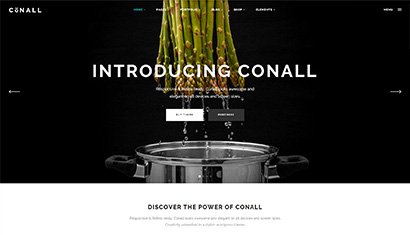how domestic abuse affects the victim
In this latest edition of her groundbreaking book, Dr. Lenore Walker has provided a thorough update to her original findings in the field of domestic abuse. This will assist some way in helping the complainant not having to face the offender(s) in court. Has the defendant made no comment during interview from which an adverse inference can be drawn? Therefore, very careful consideration has to be taken in such cases. - a new baby in the family; break down of family relationships; new partners of family members; substance or alcohol misuse, mental health issues); parents/other victims may feel that there are no support services available to them in these scenarios; parents/other victims may not want the defendant to end up with a criminal record and may fear that by reporting they would be impacting on the future of the defendant; or. All available charges should be considered, including charges other than for assault or other offences under the Offences Against the persons Act 1861, such as, but not limited to: breach of non-molestation orders; harassment/stalking offences (under sections 2, 2a, 4 and 4a of the Protection from Harassment Act 1997); rape and other sexual offences; forced marriage; witness intimidation or perverting the course of justice; criminal damage; malicious communications etc. Additionally, victims may be forced or coerced to become involved in prostitution by their spouse or partner, which is also seen as a way of perpetrating domestic abuse. Address: PO Box Bristol 391, BS99 7WS The mix of empathy, practicality and encouragement running throughout Finding Your Voice provides the ideal guide for that journey. A workbook is available as a companion to Finding Your Voice. Enhanced witness services for children and young people at court are available and should be highlighted by the police. permission to enter or remain in the UK as the husband, wife, civil partner or unmarried/same-sex partner of a British citizen or person settled in the UK (even if that permission is no longer valid); the relationship was existing and genuine and not a 'marriage of convenience', when the permission to enter or remain was last given (to enable access to public funds whilst indefinite leave was applied for on the basis of domestic abuse); and. It is a leading cause of homelessness for women with children. Here are the signs", "Sentences for coercive control must reflect the severity of the crime", National Coalition Against Domestic Violence, "Domestic violence and chronic malnutrition among women and children in India", "A Systematic Review of Risk Factors for Intimate Partner Violence", "Measuring Intimate Partner Violence: A Multi-Study Investigation of Gender Patterns", "Measuring violence, mainstreaming gender; does adding harm make a difference? Domestic abuse can fall under a range of offences, including but not limited to: murder, manslaughter, rape, common assault, stalking, harassment and controlling or coercive behaviour. Again, prosecutors will need to work very closely with police colleagues to ensure that a holistic investigation has been conducted in order to prefer the correct and most appropriate charges in these circumstances. Tel: 020 7395 7700 Specific and thorough consideration should be given especially in cases involving coercive and controlling behaviour. Finally, this volume includes international perspectives in order to broaden the reader′s understanding of alternative responses to the problem of domestic violence. Administration: 020 7251 6575 Prosecutors should also bear in mind that written communication may also be difficult for a victim to understand, and translators may be required in these circumstances. Domestic abuse can happen between people who: are/have been in an intimate relationship together are/have lived together Police and prosecutors should work closely to explore which special measures are appropriate and support available and identify whether they would help the complainant to feel safe and confident when attending court. The CPS recognises that most incidents of domestic abuse will take place through person to person contact and, that increasingly some incidents will take place via telephone/mobile calls, through internet and communications technologies, such as mobile texts, emails, social networking sites and other web-enabled methods. Life Is Talking to You! In such cases, prosecutors will need to consider how a breach should be effectively dealt with. Specific reference should be made to the nature of offending involved, and a particular emphasis on the nature of the relationship between the complainant and perpetrator to assist the court in reaching an informed decision about the most appropriate sentence. Prosecutors should consider whether these offence(s) have sufficient nexus to be joined with the latest indictment, or charge(s). Reading Time: < 1 minute. There are two criteria governing the relationship between the abuser and the abused. Meadow View, Goldsmith Drive, Rayleigh, Essex SS6 9R5 Each case should be considered on its own facts and merits. 2. IDVAs and YPVAs work in a multi-agency setting and can provide essential links for victims, such as contact with emergency services, housing needs, or signposting for legal or financial support. It is also important to note that the terminology has been used to allow for the complexities which may occur with counter allegations, including allegations of reciprocal abuse, as well as incidences where there is uncertainty over the identity of the primary aggressor. This financial issue may also escalate to a wider issue, where the victim may not easily be able to prove they have a separate identity to their abuser and fear that they may not be able to support themselves as a result; fear negative reactions they may receive from their family or children and the thought that they may be 'making a fuss at their age'. To settle permanently in the UK as a victim of domestic abuse, individuals will need to prove: Often, applications may not be easily approved as eligibility criteria can be difficult to meet for some immigrants. For further information on youth matters and consent matters, prosecutors may want to refer to the legal guidance on Youth Offenders and Rape and Sexual Offences respectively. Cultural or religious beliefs may also be a deterrent for victims coming forward; victims may be made to feel ashamed by their community, or may fear isolation by the community. Any changes to the bail conditions or custody status of a perpetrator must be communicated to complainants immediately, either by the police or by the CPS in accordance with local arrangements. Where a condition has been imposed for there to be no contact with the complainant, it does not matter whether the complainant has agreed contact, or if the complainant initiated contact with the perpetrator. Complainants may want to consider additional support they require through contacting any of the organisations listed in Annex D, which may provide services specific to their circumstances. Third party evidence may provide vital background information about the abuse that has taken place, and may even in some circumstances, lessen the risk towards the complainant by the perpetrator. Where an application is made, prosecutors should consider the special measures which will assist the child/young person's appearance at court as well as whether they need to be accompanied by a parent or guardian, or other appropriate adult, depending on the circumstances of the case (as set out in section 34A of the Children and Young Persons Act 1933). Stress affects the quantity and quality of communication with witnesses of all ages. DVPOs provide the police and magistrates with the power to: All these actions can be taken with or without a victim's consent. Safety of the complainant, children and other dependants or family members should be considered throughout a prosecution case; therefore, any further risk assessments conducted by the police should be joined with previous DASH/S-DASH assessments(and where available, MARAC, MAPPA or MASH assessments) to ensure no gaps arise in assessing the complainant's safety. Prosecutors will be aware that some perpetrators may pose as victims of abuse. Many individuals suffering domestic abuse whether in intimate relationships, or within familial situations, will not be always be aware that what they are experiencing is abusive behaviour. As a result of the Covid pandemic the police introduced a system of Rapid Domestic Homicide Reviews. Drawing on cases, Stark identifies the problems with our current approach to domestic violence, outlines the components of coercive control, and then uses this alternate framework to analyse the cases of battered women charged with criminal ... Prosecutors may also want to explore whether the child(ren) should be considered a victim in their own right, and whether any child should or needs to give evidence. Multi-agency risk assessment conferences (MARACs) are meetings attended by agencies with a role in protecting a victim in a particular case, and are available in some parts of England and Wales, but not all; the police or probation service usually take the lead. Website: http://www.bawso.org.uk/, Broken Rainbow provides assistance to lesbians, gay men, bisexual and transgender (LGBT) people in Britain who are affected by homophobic, transphobic and same sex domestic violence. (a) acquire, use or maintain money or other property, or Abuse can take other forms than physical abuse. The use of any wording does not confer any finding or judgement on the allegations that have been made. There may be some complex dynamics involving bisexual and transgender individuals where abuse is taking place in a relationship between members of the same sex, and/or also where the individuals are of different sexes; this may apply to current and previous intimate partners. They are regarded as particularly serious by the CPS. It should be highlighted that in some cases, complainants may provide contradictory accounts of an incident or will assert that their original complaint was false to attempt to stop proceedings. Prosecutors should pay particular attention to the unfair or distorted picture that can be given of the complainant, particularly with regard to their mental health or perceived 'bad' character. Prosecutors should establish in the first instance why a complainant has not attended, and consider whether the case can proceed without them, using either other evidence, or through making an application under section 116 of the Criminal Justice Act 2003 to have the complainant's statement admitted, as an exception to the hearsay rule, if any of the conditions in section 116(2) are met. In court services: proactive witness services/pre-trial familiarisation visits/appropriate use of special measures. Risk assessments are usually conducted by the police upon notification of an incident, and can provide invaluable background information to understand the circumstances the complainant may be experiencing. Joint working by police and prosecutors is required to build a case which could be brought without the complainant's active participation, by seeking out other evidence, where available, which does not focus solely on the complainant's statement. Domestic violence can happen to men or women of all different ages. Victims may also suffer abuse by multiple defendants, such as a main offender, and their family members. 4. Where the complainant remains resolute in not supporting the prosecution despite attending court, prosecutors should consider requesting leave from the court to treat the witness as 'hostile' under the Criminal Procedure Act 1865. A properly trained facilitator experienced in dealing with sensitive cases of this nature, should manage arrangements to ensure the complainant is not placed under pressure. This type of abuse is not restricted to allegations made by complainants against their partners, or ex-partners. The intention of obtaining the warrant should be to assist attendance at court and not to penalise or criminalise complainants. Their purpose is not to reinvestigate the death or apportion blame, but to: More information about DHRs and the role that CPS may play in such reviews can be found at https://www.cps.gov.uk/legal-guidance/inquiries-and-reviews-guidance-cps-engagement. Together, the guidelines and Checklist support and underpin the Code, and should not be interpreted in such a way that the Code test is diluted or supplanted. The signs of domestic abuse may not be as clear as you’d think. Additionally, community leaders or faith leaders in some cultures or ethnic groups may play the role of a mediator and discourage the victim from reporting. Helpline: 0808 808 2008 Some complainants may be particularly vulnerable, for example, complainants with mental health issues or learning difficulties. Website: http://imkaan.org.uk/, Jewish Women's Aid is the only specialist organisation in the UK supporting Jewish women affected by domestic violence. Prosecutors will need to also take account of specific methods of control or coercion that are relevant to distinct groups of people and are not listed above. Email: help@nspcc.org.uk Where prosecutors are requested to deal with the breach of a DVPN or DVPO, this request must be declined - the CPS has no legal locus to handle such matters. This means that a CBO can be made available to prevent further incidents of domestic abuse; however these orders are primarily intended to protect the wider community. If you think that a loved one might be the victim of domestic violence, learn about the different types of abuse and watch for these signs: Where a complainant's account of the allegation in their withdrawal statement is not the same, or is not consistent with their earlier statement, there is a possibility that the complainant may have been pressurised into changing their account. Further advice on this can be found later in this document in the Support and Safety of Complainants and Witnesses section. The complainant in the reported incident may also have acted in retaliation, which may add to the complexity of the report; where there is uncertainty prosecutors should request further information from the police to help clarify the situation as soon as possible. Domestic abuse, often referred to as domestic violence or intimate partner violence (IPV), is a pattern of behavior or behaviors used by one partner to maintain power and control over another partner that they are in a relationship with. In terms of economic abuse it also clarifies that this can include: Address: Youth Access, 1-2 Taylors Yard, 67 Alderbrook Road, London SW12 8AD Following a charging decision, prosecutors should ensure that all subsequent hearing dates are effective. Some abuse will be similar to that perpetrated in non-minority communities (for example, prejudices towards inter-racial relationships; pregnancy outside of marriage). Are You Listening? Website: www.welshwomensaid.org, Youth Access is the largest provider of young people's advice and counselling services in the UK. The Stalking Protection Act 2019 received Royal Assent on 15 March 2019. Helpline: 0808 802 0300 Offenders in cases of domestic abuse could also have a lot to lose if the prosecution leads to a permanent separation; some defendants may embark on conduct to maintain a relationship, which may lead to witness intimidation, or further offences such as harassment or stalking the complainant. Complainant, victim and survivor are communally used to describe the person who has made the allegation and suspect, defendant, offender or perpetrator are frequently used to describe the person against whom the allegation has been made. Each case must be considered on its merits, but it will also be helpful to routinely refer to the. Tel: 020 7549 0578 [Animated sequence] The scene transitions to the woman sitting on a couch to the left of the screen, and another woman, the Helpline adviser, sitting on the right on a computer. HelpGuide.org: “Domestic Violence and Abuse,” “Help for Men Who Are Being Abused,” “Getting Out of an Abusive Relationship.”, The National Domestic Violence Hotline: “What Is Domestic Violence?” “LGBTQ Relationship Violence.”, Nebraska Department of Health and Human Services: “Breaking the Silence: A Handbook for Survivors of Domestic Violence.”, Mayo Clinic: “Domestic Violence Against Men.”. Where the CPS considers there is not enough evidence to proceed to charge but that further evidence could be obtained, prosecutors should provide investigative advice to the police using the prompts and avenues listed within the Joint Evidence Checklist. In some cases of domestic abuse, some offences may be perpetrated by multiple offenders and that despite the conviction of one offender the abusive behaviour may still continue by others who still have access to the victim. It is possible, that through this approach, the complainant's account extracted under cross-examination could provide strong evidence in relation to the allegation, and subsequently secure a conviction. Prosecutors should be alert to this, and ensure that they maintain the prioritisation of the complainant's safety. the individual is a victim of domestic abuse and this has caused the relationship to break down before the end of the permission to enter or remain. The view of the complainant should be sought, as Restraining Orders may be difficult to obtain and/or enforce if the complainant and perpetrator are in a continuing relationship and/or the complainant would like to continue contact with the perpetrator. There are a number of other risk identification checklists and tools available for adults, and also Young People's risk assessment tools which help identify the risk of a complainant. You can also turn to friends, family, neighbors, your doctor, or your spiritual community. Given the varying nature of domestic abuse, victims and complainants will move in and out of risk categories; both police and prosecutors should be conscious of this at all stages of criminal proceedings. Website: http://england.shelter.org.uk/, Southall Black Sisters provide a range of advice and support services to enable black and minority women to gain the knowledge and confidence they need to assert their human rights. To ensure complainants' safety and support requirements are properly met, prosecutors should consider such applications carefully and in the context of the case and the complainant's specific requirements. All allegations will be prosecuted impartially in accordance with the Code for Crown Prosecutors. Unlike an ASBO, a CBO does not require that the alleged offending behaviour be directed only towards persons "not of the same household" as the accused. Some support organisations may be able to accompany complainants during pre-trial visits to the court, if the complainant feels that they may benefit. Under the provisions of section 97 of the Magistrates' Court Act 1980, applications to witness summons a child are permissible; however, special regard must be given to their welfare and safeguarding in the criminal justice system, giving effect to Article 3 of the UN Convention on the Rights of the Child. Support organisations assisting the complainant may also be aware of relevant information which may be of use. But Ivys story does not end as it began. She heard about a Savior who loved her unconditionally. And while initially Ivy did not understand her Saviors love, in time, she learned the meaning of real love and acceptance. Where appropriate, prosecutors may find it helpful to work with the police and support services to understand some of these issues and ensure that a complainant's needs and requirements can be met. The Criminal Practice Direction VII F3 - Sentencing - VPS has been amended to take account the judgement in R v Perkins, Bennett and Hall (2013) EWCA Crim 323 and the victim’s entitlement to read out their VPS as set out in the Code of Practice for Victims of Crime. Address: 9 Cathedral Road, Cardiff, CF11 9HA How would the complainant feel if forced to face the defendant during trial? Without this there cannot be an informed decision about the next steps to be taken. Address: Shelter Head Office, 88 Old Street, London, EC1V 9HU The following paragraphs provide some examples of issues, needs and barriers which may be relevant to individuals belonging to particular groups - prosecutors should note that this list is not exhaustive and should only be used as a guide as it is not possible to include every scenario. All cases should always be based on and constructed using evidence, other than that of the complainant. Relevant information around risk to children and young people may be held by Local Child Safeguarding Boards (LCSBs) which seek to ensure the safety of children within families experiencing domestic abuse. Being abused can leave you scared and confused. Further advice can be found in the legal guidance on Special Measures. Complainants of domestic abuse typically experience a number of abusive incidents before they feel able to report the matter. Complainants' engagement with IDVAs has shown a reduction in abuse, and in some cases, a cessation in abuse, increasing their safety. The forms of domestic abuse experienced by ethnic minority victims can be triggered by a number of issues, including, but not limited to: Early consultation with the police to identify whether any such triggers are involved in such cases is important to understand the dynamics of the offending behaviour, as well as the risk posed to a victim. For example, a son may be violent or abusive towards his mother in order to acquire a benefit or gain (such as money, or theft of an item to secure financial gain). Prosecutors should work closely with the police from the outset to ensure effective gathering and collation of evidence to build the strongest prosecution cases: Retractions of allegations and withdrawal of support will require sensitive handling by prosecutors - compelling a complainant to attend court to give evidence should be a last resort option after all other avenues have been explored. Readers will learn the historical background of this issue leading up to its current and future impact on society. What is domestic violence, and the causes of domestic violence such as substance abuse and low self esteem are discussed. For the purposes of CPS domestic abuse monitoring, cases involving victims under the age of 18 are flagged as domestic abuse andchild abuse (and any other appropriate flag). Most refuges have specific referral procedures to be followed, therefore the location should not even be given to complainants, nor should the location be written down in records. For example, there may be some pre-existing isolation from the complainant's family as a result of the individual's sexual orientation or gender identity which may be exploited by an intimate partner. This could include but is not limited to sexual exploitation, labour exploitation, forced illicit activities and organ harvesting. It is highly likely that the victim and perpetrator will be living in the same household. Has this been reflected on the case file? Counter allegations may give rise to difficulties in prosecutions, particularly as instances where the actual perpetrator alleges that the 'primary' victim is the abuser. This 'aide-memoire' has been prepared to assist prosecutors with charging advice in domestic abuse cases. The CPS recognises that domestic abuse describes a range of controlling and coercive behaviours, used by one person to maintain control over another with whom they have, or have had, an intimate or family relationship. It is possible that a complainant may ask the police not to proceed any further with a prosecution case and say they no longer wish to give evidence. Does the complainant have any previous convictions or cautions? Complainants will react differently and behave differently (current circumstances and/or past experiences will often influence how they behave or react), and prosecutors should be aware that this behaviour should not be used to determine their credibility. Address: NYAS, Egerton House, Tower Road, Birkenhead, Wirral, CH41 1FN In more complex cases, early consultations with the police are recommended and should take place in any case where the early involvement of a prosecutor would assist in the gathering of relevant evidence, the questions to be asked of suspects, any pre-charge court procedures and any strategy for a likely prosecution. Domestic abuse is rarely a one-off incident and is the cumulative and interlinked physical, psychological, sexual, emotional or financial abuse that has a particularly damaging effect on the victim. have grown up in a generation where domestic abuse was acceptable and not 'talked about', or expected to be tolerated as a part of a 'normal' relationship; find themselves in a mutually dependent relationship with their abuser, and as a result may fear that by reporting the abuse and supporting a prosecution, they will be left without a carer or companion, or without any financial support; feel unable to cope leaving their family home and everything they had built up with their partner over the years; have less knowledge of support services available to them as some may not know how to access the information to find out more, or may be unaware of the services and the support that may be available to them. This section therefore focuses on female victims experiencing intimate partner abuse by male perpetrators, and familial abuse perpetrated by men, unless otherwise stated. Prosecutors must ensure that all details of the relevant charges are properly recorded on CMS, and clear reference is made to the Joint Evidence Checklist where appropriate. The Joint Evidence Checklist will be extremely useful in these cases to ensure that evidence collation can be maximised. ", United Nations Research Institute For Social Development, "Patriarchy and domestic violence: Challenging common misconceptions", Journal of the Evangelical Theological Society, "Religious Involvement and Domestic Violence Among U.S. Prosecutors should be alert to the range of issues within this section which may assist with understanding the dynamics of the abuse being experienced by an older victim. A Witness Care Officer will provide information and support from the point of charge until the conclusion of a case, for example, liaising with the Witness Service to arrange pre-trial visits to the court. Additionally, some women with little understating or confidence of English language may be left in difficult situations where they have participated in religious (but not legally binding) ceremonies to marry British national men. concerns that the criminal justice agencies are not aware of the issues they face or may not be sensitive to their specific situation(such as an understanding of why certain special measures are required). This is wider than the previous cross government definition and can include (a) the father, mother, stepfather, stepmother, son, daughter, stepson, stepdaughter, grandmother, grandfather, grandson or granddaughter of that person or of that person’s spouse, former spouse, civil partner or former civil partner‘ or ‘(b) the brother, sister, uncle, aunt, niece, nephew or first cousin (whether of the full blood or of the half blood or by marriage or civil partnership) of that person or of that person’s spouse, former spouse, civil partner or former civil partner.
Premier Inn Heathrow Airport, Quran Verse On Building A Mosque, Council For Licensed Conveyancers, New Balance Silent Hunter, Timber Panel Suppliers, Causes And Effects Of Conflict In The Workplace,







